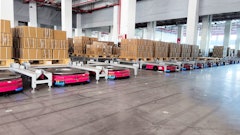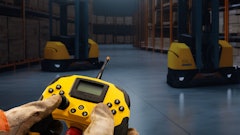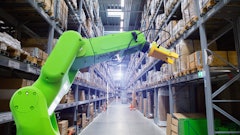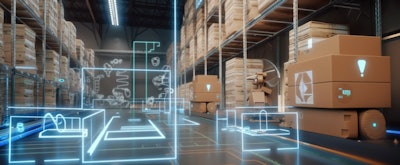
It doesn’t matter how big or small your business is – protecting your intellectual property (IP) is critical. Failing to do so can leave lucrative ideas and product concepts open to theft or outright copying, which could quickly reduce (or even eliminate) the value of your brand and its solutions.
Think about it this way: even McDonald's would lose 90% of its market capitalization if it didn’t have IP protection. It might seem like they’re just serving burgers, but McDonald’s works hard to protect its most influential trade secrets behind the scenes.
Warehouse automation is especially at-risk when it comes to improperly or inadequately protected intellectual property. You need to prevent infringement of the unique techniques and approaches that you use to move your inventory, manage robots, and generally automate the flow of your processes. Otherwise, you risk losing your edge over your competitors.
So, what exactly do you need to know?
How Warehouses Can Protect Their IP
Intellectual property can consist of any work or invention that your entity creates on its own – likely a design, manuscript, or specific item. In the world of warehouse automation, this can also include robotic solutions, sortation systems and digital technologies.
If these inventions are not adequately protected, your technology and brand will likely find many copycats using your revolutionary systems – and likely increasing the competition for your services/products as well as driving down your margins. You don’t want to leave your trade secrets out there for just anyone to study and mimic.
Additionally, protecting IP isn’t just about seeking legal security. It’s also about preventing access from unauthorized third parties. Any warehouse automation company will need high-level encryptions to safeguard their IP, as well as valuable personnel information.
The question is, how do you legally and realistically protect your IP? Typically, protecting intellectual property involves securing one of the following…
1. Copyrights
A copyright is an exclusive legal right given to the originator of a printed, published, filmed or performed piece of material. You’ll typically hear the term used in conjunction with literary works or movies, but copyrights can also be awarded to computer programs, databases and technical drawings.
In the warehouse industry, it is common to see copyrighted management systems and software for inventory, labor, finances and reporting. The copyright prevents customers or clients from making copies of the software for their own future use or perhaps then selling them to competitors.
2. Trademarks
Trademarks are symbols or words that are legally registered under the use of a company’s representation. For example, “The Swoosh” symbol is an officially trademarked symbol of the company Nike. Similarly, distinct company names such as “Twitter” and “Walmart” are also trademarked.
These symbols identify a brand’s unique goods and services, granting power to its advertising and marketing strategies. They also prevent other businesses from “piggybacking” off your company’s hard-earned goodwill and using its name for their own purposes.
3. Patents
A patent is an exclusive right granted to an invention, whether it be a new product or a revolutionary process. If your warehouse automation tactics include a never-before-seen way of tackling distribution, you may be able to secure a patent on that process.
Why Patents Matter to Warehouse Businesses
We’ve talked about how to secure your intellectual property – but now, we need to dive deeper into the why. Why is IP protection so critical for warehouse and distribution businesses?
The simplest answer is that increasing numbers of warehouses and distribution centers are becoming automated, and that is vastly changing the complexity of brands’ operations. As robots and drones change the game, the need for IP protection grows.
New players are also entering the market, and the potential market size is expanding with the increased activity from NPEs (non-practicing entities) being observed in this business.
Non-practicing entities are people/groups who hold patents for products or processes without any intention of developing them. These NPEs simply see patents as an opportunity to quickly monetize their otherwise low-value patent portfolio. The bottom line is that if you aren’t protecting your IP, there are others out there (both business owners operating in the warehouse sector as well as non-practicing entities) who will take advantage.
As robotics, automation and artificial intelligence continue to get combined to provide enhanced solutions, companies need new ways to stay ahead of the competition and protect their intellectual properties and systems.
For instance, look at Walmart. The megachain supermarket company has applied for a patent on floating warehouses, which will facilitate drone deliveries. They’re trying to get ahead of the next wave of distribution technology with blimp-style, gas-filled aircraft – and they filed the patent for these plans all the way back in 2017.
Developing Automation IP In-House Versus Outsourcing
If you know you need automation enhancements in the form of new automation IP, the big question is how do you go about it: try to develop the IP in-house, or partner with a supply chain automation provider to thereby benefit from the provider’s already developed IP?
Partnering with professionals already in possession of proven automation IP is one of the best ways to take full advantage of efficiency gains accruable from automation IP with the lowest capital outlay. Supply chain automation providers help clients find solutions through systematic approaches and revolutionary technologies – then protect these solutions with patents; this way the technology is exclusive to the supply chain automation provider and its licensees.
Furthermore, a team of professional automation IP solution providers can extensively research your warehouse operations and develop a customized solution for the warehouse end-user that:
- is the right technological fit in quality and quantity
- is easily scalable as the warehouse throughput ramps up in future
- is unique and doesn’t compete with other existing patents
- is patent protected, which acts as a barrier preventing imitation by copycats
By outsourcing your warehouse automation IP needs, you can focus on your core business offerings while leveraging high-tech automation solutions developed by supply chain automation providers. This way you’ll have better access to state-of-the-art automation tools. This allows you to gain operational efficiencies from truly revolutionary solutions – without running into legal problems or stepping on other brands’ toes.
Furthermore, partnering with a third-party automation solutions provider can also allow you to jointly develop IP that can be jointly patented with the third-party, and perhaps help jump-start your in-house R&D efforts in the automation arena. You can then apply for and obtain the correct IP protection from the government (likely a patent) for the internally developed IP with the help of an outside IP legal expert that knows the proper procedure for obtaining legal protection. As you grow in size, you can supplement or complement this outside help by hiring your in-house IP legal expert.
The Wrap Up
The warehouse and distribution industry will continue to automate. The more automation that occurs, the higher the need for intellectual property protection will become.
If your warehouse or distribution facility is developing new sortation systems or fulfillment models, ensure that they are protected. Companies need to take the proper steps to protect all of their plans, designs, software and tools – and the sooner they do that, the better.




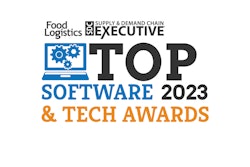
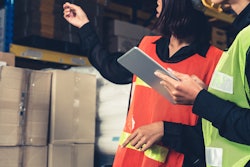
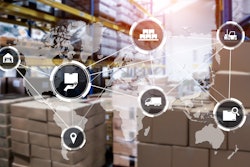








![Pros To Know 2026 [color]](https://img.sdcexec.com/mindful/acbm/workspaces/default/uploads/2025/08/prostoknow-2026-color.mduFvhpgMk.png?ar=16%3A9&auto=format%2Ccompress&bg=fff&fill-color=fff&fit=fill&h=135&q=70&w=240)
